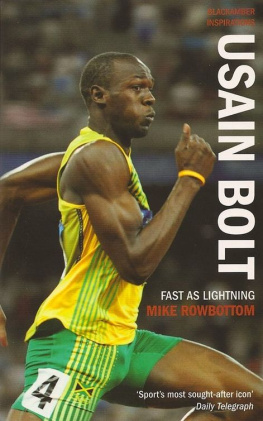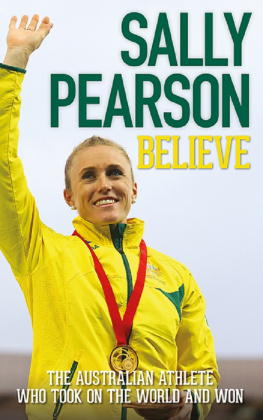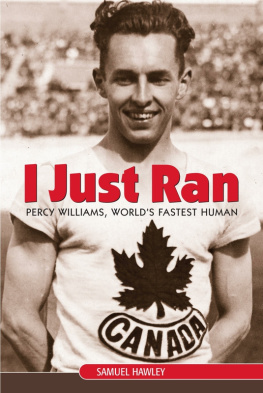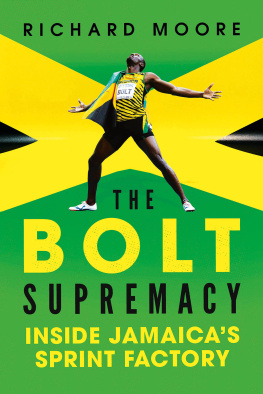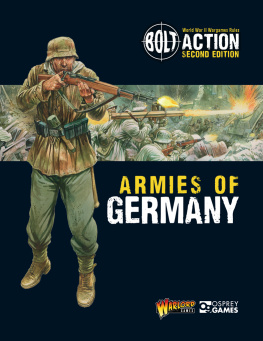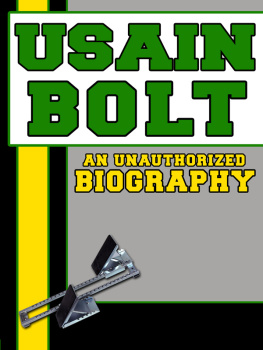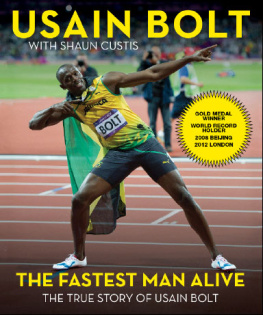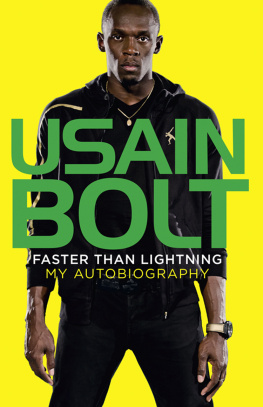
Published by SportsBooks Ltd
November 2011
Copyright: Steven Downes 2011
This ebook edition first published in 2011
The right of Steven Downes to be identified as author of this work has been asserted in accordance with Section 77 of the Copyright, Designs and Patents Act 1988
This ebook is copyright material and must not be copied, reproduced, transferred, distributed, leased, licensed or publicly performed or used in any way except as specifically permitted in writing by the publishers, as allowed under the terms and conditions under which it was purchased or as strictly permitted by applicable copyright law. Any unauthorised distribution or use of this text may be a direct infringement of the authors and publishers rights, and those responsible may be liable in law accordingly
ISBN 9781907524257
Cover by Alan Hunns
Acknowledgements
THEY SAY THAT athletics books dont sell. Ive never yet managed to pin down exactly who they are, but over the course of the past few months, I have managed to determine someone who is very much not one of them.
Thats Randall Northam, the owner of SportsBooks Ltd and the publisher of this volume, and a rare beast in these days of Amazon, Kindles, tinterweb and the 30-second attention span.
Randall and I have known one another for many years. It is more than twenty since we jousted weekly over a hundred pages or more of athletics news, features and results, he as the editor of Athletics Today, me clinging on for dear life at the helm of Athletics Weekly.
Randall has spent the last dozen years or so cultivating a splendid niche in the publishing world, often taking on books that other publishers had declined as not being commercial enough. His books are usually written by experts or enthusiasts, people who really know their stuff, and they are always fascinatingly interesting.
So modesty demands that I ought to question why he has taken on this book.
But then you really do have to question why he would not. Even in this television-dominated age, theres a healthy market in cricket books, and some in golf, too. Football books about how I spent 25 years suffering as a fan of Man United/Arsenal/Man City seem to roll out of the printers on a weekly basis.
But books about track and field? All too few and far between, even when one of the worlds top five sports stars happens to be a sprinter.
So thank you, Randall, for giving me the opportunity and also having the patience to deal with my authorial shortcomings.
I should also like to thank Norman Giller, who has recently become an old mate, and provides constant inspiration about the business of sports writing.
Thanks, too, to Patrick Collins, of the Mail on Sunday, Paul Kimmage, in the Sunday Times, and Martin Kelner, in the Guardian, for weekly demonstrating how it ought to be done.
The BBC, for all its faults, deserves recognition for its generally reliable coverage of international athletics, on TV, on radio (Mike Costello is an under-rated diamond of a commentator and expert, both on the track and in the ring), and online. The BBC documentary by Michael Johnson about Bolt earlier this year was a fascinating watch, and provided much more insight and background to life in Trelawny.
The IAAF, specifically Nick Davies and Chris Turner, also deserve thanks because, through their patience and tolerance, I have had the privilege and (some) pleasure of attending so many of the world governing bodys events over the past three decades, often as a member of their reporting team.
If anyone, apart from U St L Bolt himself, is responsible for inspiring this book, it is the aforesaid Davies, a one-time training partner of Linford Christie no less, who has spent the past twenty years based in Monte Carlo. Poor lamb.
But it was Nick who inflicted upon me a week in Sherbrooke and so gave me my first encounter with Bolt. Truly, it was a moment which has stayed with me ever since.
We have made attributions to newspapers, magazines and books wherever possible. I can recommend Bolts own ghosted biography, 9.58, provided it is read with that fistful of salt that acknowledges that it offers only a view via the carefully honed prism through which the sprinter or, more probably, his management and handlers would prefer you to see him.
That book is also, perforce, already dated. Writing a book about a moving target, especially one that moves as fast as Bolt, is inevitably only going to provide a snapshot of history, and from one point of view.
And it is from my point of view that this book also owes a vote of thanks to Jennifer Bolt, Wellesley Bolt, and yes, Usain Bolt. Its been a pleasure and a privilege to follow your career, thus far.
Theres a bottle of Guinness in it for you, in the Hole in the Wall in Waterloo, when you visit London next August.
Steven Downes
London, November 2011
The Warm Up
bolt1n. Short heavy arrow of crossbow; discharge of lightning (~ from the blue, complete surprise); door-fastening of sliding bar and staple; metal pin with head for holding things together, usu. riveted or with nut.
bolt2v.. v.i. & t. Dart off or away, (of horse) escape from control; run to seed; (cause fox, rabbit etc. to) escape from hole or burrow; gulp down hastily without chewing; ~ hole (fig.) means of escape.. v. t. Fasten (door etc.) with bolt. Keep in or out with bolting door.
bolt3n. Act of bolting; sudden start; running away.
HIS VERY NAME suggests speed, and in so many ways.
A simple four-letter word which in the English language is widely understood to imply rapidity. A sudden start? Well that will be part of this story. A means of escape? Well that, too, in some respects. With head for holding things together, to take the liberty of abbreviating one definition, will provide us with another element of this account.
When Usain St Leo Bolt hove into the view of the global media in early 2008, the headline writers union ought to have had a whip-round. And a generous one, at that. It was Olympic year, and here was a promising new star in their firmament, possibly the biggest star, and he would look after all their back-page leads, and some on the front pages, too, for the coming summer and well beyond. The fastest man the world has ever seen could not have chosen a better, more fitting name, had he done so by deed poll.
And yet, nearly four years later, do the billions of people who have watched, and enjoyed, Bolts record-breaking exploits, whether on television or, if they have been really fortunate, in person, really know much more about the man now, in his twenty-fifth year and approaching his third Olympic Games, than they did when the gawky teenager turned up in Athens in 2004 and departed almost unnoticed after failing to get beyond the heats of his event?
For there are other definitions of the word bolt which are also apposite. Keep in or out with bolting door; escape from hole or burrow.
The paradox is intense. Here you have one of the worlds hottest commercial sporting properties, whose public appearances and utterances outside the track have become as scarce as raindrops in the Sahara.
In 2009 Bolt was in Berlin, the city where seven decades earlier, Adolf Hitler had strutted his Aryan domination stuff all over the pliant Lords of the Olympic Rings. History records that in 1936, Jesse Owens, with four gold medals in his knapsack by the end of those jackbooted Games, was the ultimate winner in that little sporting stand-off.
Bolt may have managed to win only three gold medals at the 2009 World Championships (unlike Owens, Bolt does not try the long jump, probably because his dodgy back would not allow him to), but when it came to winning over the German public, the 21st-century sprinter was light-years ahead. The hottest clothing items for blond-haired and blue-eyed German kids were Puma-branded T-shirts in the joyful colours of Jamaica, carrying an image of Bolt in his trademark (and possibly trademarked) lightning bolt pose. The Berlin Wall may have come down two decades earlier, but now Bolt was breaking down any further lingering barriers between the races in Germany.
Next page


